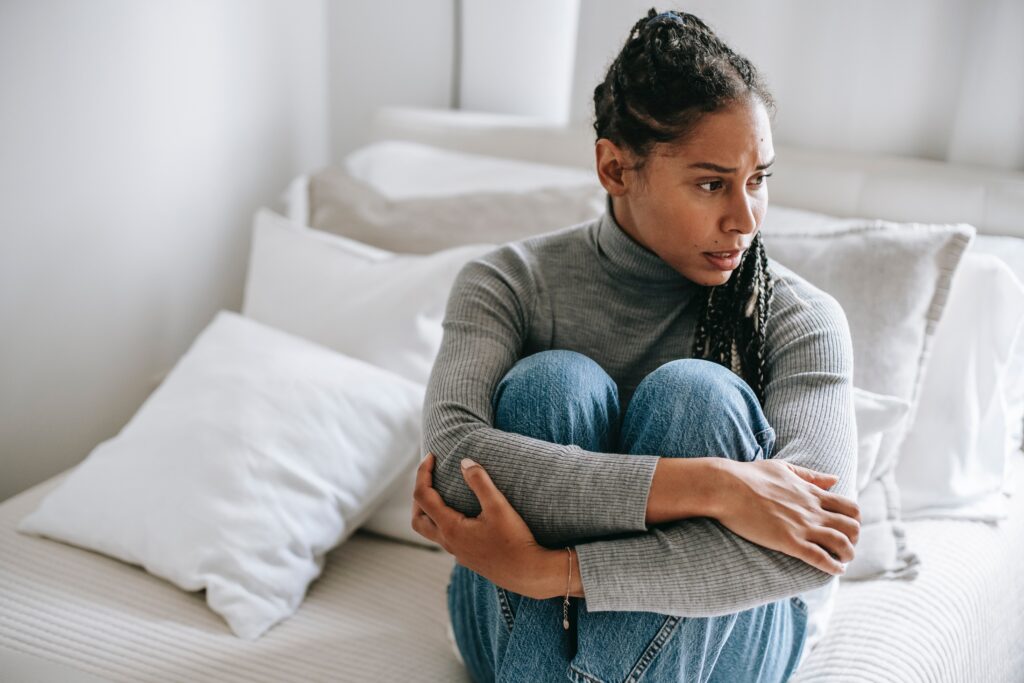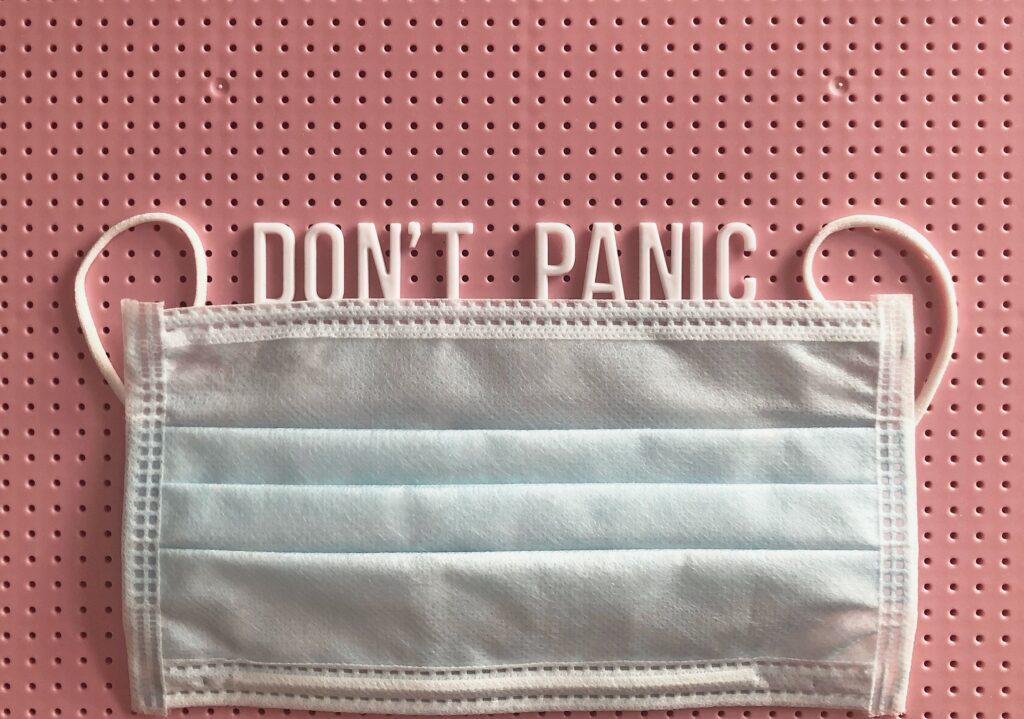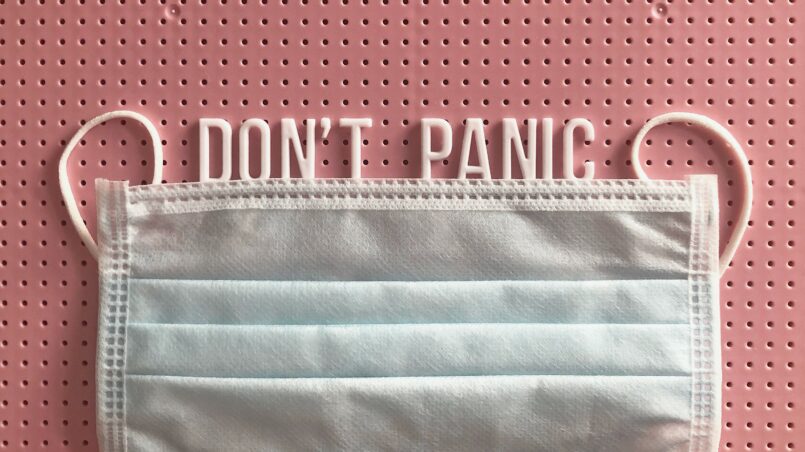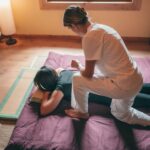An Anxiety Attack: The Triggers of Behavioral Alienation.
To understand the meaning of the term “anxiety attack,” it is essential to understand the difference between “anxiety” and an “anxiety attack.” Anxiety is a normal emotional state of mind that is caused as a reaction to a stressful situation or a distressing physical condition. This normal condition takes the form of an aberration when the individual continues to experience stress even when the stressful situation or condition is long past or if the individual experiences severe anxiety or stress in the absence of any obvious stress-causing conditions. It is often difficult to distinguish between a heart attack and an anxiety attack, as the symptoms for both are almost similar.
An anxiety attack is usually characterized by several or all of the following symptoms; acute escalating tension, pain in the chest, nausea, lightheadedness, dizziness, sweating and loss of one’s perception of one’s ‘self’. The individual is said to be experiencing an anxiety attack when he/she begins to experience several of these symptoms that become severe as the time passes and usually reach a peak within ten minutes.
It is possible to classify anxiety attacks into many different categories, each with its own features and a few symptoms that are common to all categories. Anxiety disorder is classified into six major categories by the National Institute of Mental Health; panic disorder, a sudden anxiety attack that can be triggered for no apparent reason; generalized anxiety disorder that affects the individual on a regular basis, i.e. he/she suffers from constant tension; obsessive-compulsive disorder, a condition in which the person suffers from an urgent need to participate in certain rituals and activities without any need for the individual to engage in them; Social phobia, a condition in which in everyday social situations the individual feels overly anxious; particular phobias, the attacks caused by a fear of something, usually irrational, and Post-traumatic stress disorder, a condition that follows a traumatic event in which the person has persistent thoughts of the event and feels emotionally traumatized.
Medical researchers have discovered a number of reasons that are considered the possible causes for attacks. The key culprits that cause attacks are known to be genetics, substance abuse, environment and personality characteristics. However, there may be many more triggers of anxiety attacks that have yet to be discovered by the medical researchers.
Anxiety Attack Symptoms: Triggers of Stress.

Stress and anxiety are known to be the body’s natural defence mechanisms that are triggered off if we have to face an uncomfortable situation. However, when these defensive mechanisms take the form of extreme anxiety or stress that persists even when there is no unpleasant cause to activate them, it becomes important to realize that these are signs of an anxiety attack and are abnormal, which means that in order to lead a normal life, the person requires medical attention or other sources of support.
It is essential that to seek appropriate help, people should be able to recognize an anxiety attack symptom in their own behaviour and also in the behaviour of their loved ones. The most prevalent symptoms of an anxiety attack are as follows; constant worry over sources of trouble that are absent and are unlikely to be ever-present; body pains, soreness and muscular tension that does not emanate from any illness or injury; insomnia; dizziness and lightheadedness; nausea or diarrhoea and recurring troublesome thoughts that prevent you from engaging yourself in any activity. Even though most of us may experience an anxiety attack symptom once in a while, it is the recurrence of these symptoms over and over again that indicates that the individual may be suffering from Generalized anxiety disorder, panic disorder, phobias, post-traumatic disorder or obsessive-compulsive disorder.
==> Click here to discover how to turn off your stress.
Symptoms of an anxiety attack will often last more than a few minutes, and the severity of the symptoms typically increases with time. As per the cause of these symptoms, there is never an obvious cause present and most people who have recurrent anxiety disorders often regularly suffer from the fear of experiencing another attack. If you or any of your loved ones are experiencing a repeat of the above-mentioned symptoms, it is desirable to urgently seek professional assistance. They can potentially get worse and manifest themselves in more complex symptoms, contrary to the common opinion that anxiety attacks subside with age. Virtually all cases of an anxiety attack can now be treated through drug therapy combined with behaviour therapy.,
Anxiety Panic Attack: The Nature of an Anxiety Panic Attack.
A heart beats wildly and out of control. At one point, the person feels the possibility of a heart attack could be imminent. The person tries to get enough air into his system in order to bring his heart rate down to a level that is safe, but his breathing is so laboured that breath control is not possible. The man is suffering from an anxiety panic attack. It is not the first time and will not be the last time. It is not the last time for him nor will it be the last time for anyone else who experiences a panic attack.

An anxiety panic attack is frightening mainly because it happens very quickly and without warning and occurs in short bursts. While one would assume that a short burst of an anxiety panic attack makes it harmless (at least when compared to a protracted, extended panic attack), the reality is that these short episodes are so intense they can leave a person badly frightened and confused and, possibly, delirious. No one likes to lose control, not even for a few seconds. There is an incredibly uncomfortable feeling associated with a loss of control due to fear, especially if one is not sure why such a feeling of panic occurs.
While it is easier said than done, when one feels a panic attack occurring, one needs to keep focus and realize that the feeling will pass shortly. No, this will not completely eliminate the anxiety panic attack to a non-occurrence, but it can help lessen and reduce the confusion and fear. When the feeling does pass and one feels that an anxiety panic attack may happen again within a short period of time, it may be best to seek an emergency room for treatment that may help the next anxiety attack from being one that is worse.
Anxiety Phobia: Anxiety Phobia and Drug/Alcohol Abuse

==> Click here to discover how to turn off your stress.
People of all walks of life suffer from anxiety at one time or another. Being overly anxious is something that people will naturally feel when they are in a stressful situation. Usually, anxiety goes away as the stressful situation passes. However, there are many different degrees of anxiety and when one suffers from social or anxiety phobia disorders that are severe enough to be considered a disability, a person is going to need to seek professional help in order to effectively deal with the situation. That is, of course, provided they understand that they have a disability. Many people who suffer from social or anxiety phobia do not realize the extent of their condition and do not seek proper help. Instead, they become susceptible to drug and alcohol abuse.
How does this happen? An individual dealing with anxiety phobia may be so over-anxious that they will reach for something to calm them down. Usually, the easiest way to do this is to reach for an alcoholic beverage or, worse, a prescription painkiller, muscle relaxer or anti-anxiety pill that may not have been obtained legally or, perhaps, obtained through the grey area of online pharmacies that offer internet consultations. Either way, the individual is self-medicating with products that have the potential for abuse and addiction. When the consumption of these substances reels out of control a person can end up being addicted. Clearly, this will only make any psychiatric disorder worse.
The only effective means of combating this is education. If there was better education available that would inform people as to conditions such as social or anxiety phobia disorders, people’s awareness would be elevated and they may not reach for controlled substances in order to combat a condition they may not truly understand. While public awareness and education of anxiety phobia has grown in recent years, it still has a long way to go.
Generalized Anxiety Disorder: When Stress Persists.
It is absolutely normal to feel anxious or worried sometimes but if an individual stays worried or anxious most of the time and does not feel relaxed even when there is no apparent reason for him/her to be tense, he/she could be suffering from Generalized Anxiety Disorder, or GAD as it is commonly known as. GAD differs from normal anxiety in that it persists for a long period of time and prevents the individual to carry out a normal daily routine. It is easy to distinguish between normal anxiety levels and GAD. When the anxiety level of an individual becomes severe, disrupts his normal activities and goes on for several months, he is said to be suffering from GAD.

An individual suffering from Generalized Anxiety Disorder has no control over his thought processes. The overwhelming sense of anxiety makes him unable to think rationally, even when he realizes the irrational flow of his worrisome thoughts. His fears and worries keep recurring in his mind like an unending cycle and block out all other thoughts and feelings. A person suffering from Generalized Anxiety Disorder is unable to relax and is consistently restless and fidgety. He may keep thinking about the eventuality of an unpleasant event happening when there is a very unlikely chance of that event ever taking place.
These unnerving thought processes often get manifested in physical symptoms of Generalized Anxiety Disorder, as well. The individual usually feels a lack of energy and the enthusiasm to engage in any constructive activity. He may also experience muscular tension or pain and soreness in different parts of the body. A person suffering from GAD is usually unable to sleep well, as he is too distressed by the troublesome thoughts that keep coming to his mind again and again. He may also suffer from severe headaches, sweating, trembling, lightheadedness, nausea and stomach problems such as diarrhoea.
Even though medical researchers have not been able to find the exact causes for GAD, it can be attributed to psychological and biological factors. The role of genetics can also not be ruled out, since the tendency to develop GAD usually runs in the family. Since Generalized Anxiety Disorder is primarily considered to be a psychological problem, it can be treated through a variety of treatments such as Cognitive-behavioral Therapy, Psychotherapy, medication and stress -relief techniques, which help an individual to learn ways of dealing with his sources of anxiety and to develop a stronger attitude towards the problems of life, as such.
Separation Anxiety Disorder: The Fear of Losing Your Loved Ones.
A separation anxiety disorder may be defined as a psychological condition in which the individual experiences severe anxiety or stress by thoughts of or actual separation from home or from the people with whom the individual has a strong emotional bonding. While more cases of separation anxiety in children are frequently witnessed, this disorder can manifest itself in people of all ages. Separation anxiety also reduces in children after reaching a certain age and only needs to be treated with the help of a doctor if it goes past a certain age. Instances of separation anxiety disorder are also prevalent in animals, with pets exhibiting abnormal behavioural patterns when they are separated from a human or animal companion or when they are taken away from an environment they are familiar with.
Separation anxiety in children is considered a normal component of the developmental stage when the child cries or may show signs of being in stress when separated from his parents or from home. Separation anxiety disappears when the child starts to feel more secure and is assured that the parents will come back after a short absence. If the child continues to show aberration in his behaviour every time he is away from his parents or his familiar surroundings, after he has reached the age of five, it may show that he is suffering from a separation anxiety disorder.
Some of the common symptoms of separation anxiety disorder are the persistence of anxiety and stress when separated from home or from loved ones, excessive anxiety about losing a person with whom the person is emotionally attached, fear of an imaginary situation that may result in separation from loved ones, fear of being alone, refusal to sleep away from home or away from loved ones and the manifestation of the anxiety in physical symptoms when the individual is sure that the separation is imminent. In children, a separation anxiety disorder may take the form of a refusal by the children to attend school. This is also known as the “school refusal” syndrome.
The most common treatment options for separation anxiety disorder are play therapy, cognitive behavioural therapy, relaxation techniques and family therapy. These treatments aid the child to calm down, understand that the separation from home and parents is a normal phase of growing up and also help an older child to take control of his negative behaviour and practice appropriate behaviour when separation is imminent.
Looking at Social Anxiety Disorder
When it comes to the study of psychiatric medicine, the world has come a long way as there have been great strides made in helping educate people as to the severity and scope of mental health disorders. Granted, there are many people who live in the dark days of mental health and do not believe that certain psychiatric conditions have any legitimacy and that they are the construct of a person’s weak will and psychologists who take advantage of people who have “nothing wrong with them.” Along with bipolar disorder, there is no other psychiatric condition that is more misunderstood or maligned like social anxiety disorder (SAD).
Social anxiety disorder is a condition that precludes people from having normal social interactions because social settings cause a great deal of stress and nervousness. The stress and nervousness that people face are so severe that it is next to impossible to overcome without professional help. People afflicted with a social anxiety disorder will have a tendency to spend time alone and avoid the world, so to speak and have a tremendous amount of difficulty being around people in both personal and professional settings. Needless to say, SAD can greatly harm a person’s life to a significant degree because of this.

It would be highly advised to seek professional help and discuss the impact such a condition is causing with a therapist or psychologist. This way, one can find a way of coping with the problems that social anxiety disorder has caused and how to free oneself of its mental shackles.
While therapy and counselling is a great way to help alleviate the problems of social anxiety disorder, they will generally not be enough to reduce the condition to a completely manageable level. Psychiatric disorders of this type generally require outpatient drug therapy under the watchful eye of a qualified psychiatrist. However, a combination of medication treatment and counselling therapy is the best course of action.
Anxiety Medication And its Side Effects.
Anyone who spends more than a couple hours in front of the TV has probably seen a number of advertisements from pharmaceutical companies notifying people of the availability of a variety of new medications crossing over a number of different health-related conditions, anxiety disorders among them. Also, anyone who spends more than a couple of hours in front of the television is also familiar with personal injuries lawyers telling people who have been injured by Seroquel, Risperdal, Zyprexa or Accutane to seek legal advice. Let it be known, Accutane is an acne medication and the lone dissenter among the other three prescriptions as they are all anxiety medication.
The problem with these three types of anxiety medication includes, at the minimum, massive weight gain and the inability to get the proper sleep or, at worst, the development of diabetes and, in the case of Risperdal, the onset of pancreatic disease. For whatever reason, these prescriptions entered the psychiatric world without adequate testing and even after it becomes obvious that these types of anxiety medication can be harmful, the Food and Drug Administration (FDA) has not issued a recall. The best proven so far is STRESS LESS. It is a clinical research-backed natural stress and anxiety relief supplement that blocks the release of hormones that make people feel stressed so they can feel calm, cool and collected in stressful situations, improve their stress response, and combat the negative and potentially fatal side effects of ongoing stress.
So, what can a person do if he or she has been taking one of these prescriptions without knowing the possible side effects? First, the person needs to speak to the physician who prescribed the medication and discuss the matter. The doctor may inform the worried person that he prescribed the medication at a level that was below the dosage that is commonly associated with the bad side effects. On the flip side, the doctor may end up being evasive. In this case, it would probably be a wise thing to find a different doctor. It would also be wise to speak with a Doctor of Internal Medicine and tell him about the anxiety medication that has been ingested. An internist would be able to perform a series of tests to see if any serious health condition has occurred as a result of taking the anxiety medicine.
Anxiety Treatment: Therapy that Combats Stress.

Almost all cases of anxiety disorders, such as phobias, post-traumatic disorder, obsessive-compulsive disorder and others can be treated through behavioural therapy and through medication. The common mental therapy treatment options for people suffering from anxiety disorders are cognitive behavioural therapy, stress-relieving or relaxation therapy, exercise and group therapy. While the anxiety treatment approaches might be different, all of the above therapies depend on one basic principle: i.e. to induce strength and resilience in the individual to be able to face any unpleasant life situation and to face the sources of stress, imaginary or real, with fortitude.
==> Click here to discover how to turn off your stress in just seconds a day.
One of the most popular anxiety treatment options for anxiety disorder, cognitive behavioural therapy, is based on the principle that our emotions influence our behaviour. So, for an individual to function effectively, it is essential that he should think positively and harbour constructive thoughts. The therapist helps the individual to recognize the thoughts and the beliefs that are unpleasant to the individual and strengthens him by devising a strategy to face the situations and thoughts that are unpleasant and fear-provoking for him. The cognitive-behavioural therapy includes lessons on slow breathing, relaxation techniques and education about anxiety, as well.
Relaxation therapy, another common means of treating anxiety, educates the person about different techniques of relaxation that allow him to release the muscular and psychological stress he experiences whenever he faces an unexpected situation. The strategies for relaxation can include slow breathing exercises, isometric relaxation, meditation, visualization, and self-hypnosis. The person should regularly practise these relaxation techniques, particularly when he feels that due to the rise in the level of anxiety caused by some unpleasant source, he will experience an anxiety attack soon.
Because of the adverse effects that are frequently associated with the use of prescription drugs, mental health therapies are often a safer choice than prescription medications. Also, prescription drugs do not alter the behaviour of the individual or help him face unpleasant situations but only provide relief from the anxiety and stress on a short-term basis. On the other hand, behavioural therapies like the ones mentioned above have been proven to be effective, non-drug induced anxiety treatment to combat anxiety that is also recommended by the doctors themselves.
Anxiety Treatment Centers.
No matter how much one believes in oneself, there is an undeniable fact of life that purports the notion that no one can “go at it alone” when faced with a serious problem. It would not only be unwise to try and trudge forward and overcome a severe medical condition (whether physical or mental) by oneself, it could also be counterproductive and possibly even harmful. When one is faced with a condition such as Social Anxiety Disorder or Obsessive Compulsive Disorder, then making a visit to one or more anxiety treatment centres to fully assess the extent of the problem and find the proper cognitive behavioural therapy that could either eliminate or, at the very least, minimize the condition so that it is no longer as affecting as it is.
While some may cringe at the idea of anxiety treatment centres they do so because they are familiar with the stereotypical (albeit at one point in history very true) image of a mental health facility. That is to say, the treatment is more frightening than the condition. In reality, mental health care has come a long way in the last few decades and an anxiety treatment centre will usually be a place where one can find relief as opposed to a place where one finds more problems.
If one were not familiar where to find any anxiety treatment centres, one would be best-suited reading journals such as PSYCHOLOGY TODAY for information about centres or looking at anxiety disorder treatment centre directories that may be listed on the Internet. It would also be wise to look and see how long each of the anxiety treatment centres has been open and what the background of the professionals who work there actually is. A little consumer research could help direct someone to the anxiety treatment centres that are best suited for a particular individual.
Click through the following topics by the same author to read more…




Your articles are very helpful to me. May I request more information?
Thanks for your advice on this blog. 1 thing I would choose to say is the fact that purchasing electronic devices items on the Internet is not new. The fact is, in the past decades alone, the market for online electronic devices has grown substantially. Today, you can get practically any specific electronic gizmo and devices on the Internet, ranging from cameras as well as camcorders to computer spare parts and video gaming consoles.
Nice post. I study something tougher on totally different blogs everyday. It’s going to at all times be stimulating to learn content material from different writers and observe a little one thing from their store. I抎 choose to make use of some with the content on my weblog whether or not you don抰 mind. Natually I抣l provide you with a link in your internet blog. Thanks for sharing.
I have been exploring for a bit for any high quality articles or blog posts on this sort of area . Exploring in Yahoo I at last stumbled upon this website. Reading this information So i抦 happy to convey that I have an incredibly good uncanny feeling I discovered just what I needed. I most certainly will make sure to don抰 forget this site and give it a glance on a constant basis.
Hello would you mind letting me know which hosting company you’re utilizing? I’ve loaded your blog in 3 different web browsers and I must say this blog loads a lot quicker then most. Can you recommend a good internet hosting provider at a fair price? Thank you, I appreciate it!
You can certainly see your skills within the paintings you write. The sector hopes for more passionate writers like you who aren’t afraid to mention how they believe. All the time go after your heart.
Hi there, I found your website via Google while looking for a related topic, your website came up, it looks great. I have bookmarked it in my google bookmarks.
Great post. I was checking continuously this blog and I am impressed! Extremely useful info specially the last part 🙂 I care for such information much. I was seeking this certain info for a long time. Thank you and good luck.
Thanks for sharing excellent informations. Your web-site is so cool. I am impressed by the details that you抳e on this site. It reveals how nicely you perceive this subject. Bookmarked this web page, will come back for extra articles. You, my friend, ROCK! I found simply the information I already searched everywhere and just could not come across. What a perfect web site.
Thinker Pedia I really like reading through a post that can make men and women think. Also, thank you for allowing me to comment!
You really make it seem really easy along with your presentation however I in finding this matter to be really one thing that I feel I might by no means understand. It seems too complicated and extremely extensive for me. I’m looking forward for your subsequent submit, I抣l attempt to get the grasp of it!
I have seen plenty of useful elements on your web-site about computers. However, I’ve the judgment that laptop computers are still not nearly powerful sufficiently to be a option if you generally do projects that require a great deal of power, such as video editing and enhancing. But for world wide web surfing, word processing, and quite a few other frequent computer work they are just fine, provided you may not mind small screen size. Thank you sharing your opinions.
Would you be eager about exchanging hyperlinks?
Hi there! Do you know if they make any plugins to safeguard against hackers? I’m kinda paranoid about losing everything I’ve worked hard on. Any recommendations?